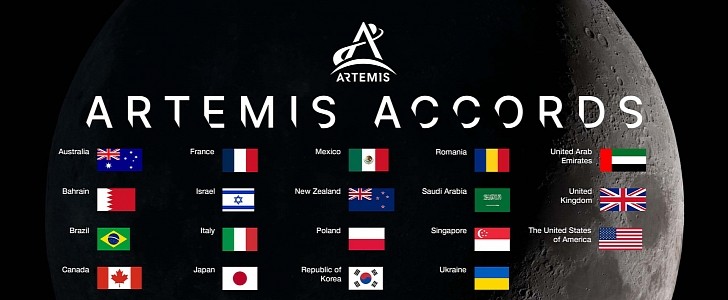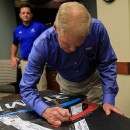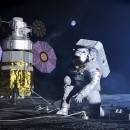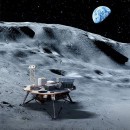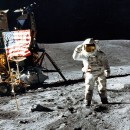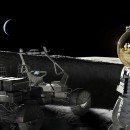For far too long, there was a duopoly in place in the field of space exploration. If you weren't an American or a Soviet, your behind was staying on Earth indefinitely. But those days are long behind us. The cosmos is ripe for the taking for any group that wants it badly enough.
But the second great space race is not set to look much like the first one back in the 1960s. So to speak, it won't be one or two superpower nations duking it out for space superiority. But instead, groups of nations will pool their resources into grand, multinational collaborations that aim to be a downside more sustainable than what the Americans and Soviets achieved 50 to 60 years ago.
These are the Artemis Accords, and they're here to ensure a geopolitically divided Moon, as feared by countless futurist philosophers, doesn't come to pass. Let's take a look at the details. This novel collective of nations was named in honor of the upcoming NASA/ESA manned missions to the Moon and possibly Mars later on.
The Artemis Accords aim to bridge cultural divides, cross continents, and do away with forms of prejudice in the name of bringing not just Americans but an eclectic group of people from all corners of the globe. If you could sum up the intentions of the Artemis Accords into one word, NASA would prefer it be "Interoperability."
Why is this? Well, we answer this with other questions. What good is a space program where an American-Canadian spacecraft can't connect with an Anglo-French service module? How useful is flight software developed in the Middle East if the specialty fabricators in East Asia or Eastern Europe can't interpret any of it?
The name of the game in this instance is enabling a collection of 21 nations to share a common language by which the entire Artemis program can be constructed. We see this philosophy applied in a number of novel ways, and it's not just limited to hardware compatibility. For one thing, identifying and registering all known man-made objects in Lunar orbit or on its surface is a key component of the Artemis Accords and the five planned space missions under its umbrella.
Another tenant of the Artemis Accords is a mutual emergency aid pact intended to obligate all manned crews on other worlds to come to the rescue of others in the event of an emergency. A good understanding of exactly what's on the Moon's surface and who built it is the first step to preventing unnecessary interference. The data from the Lunar surface is no doubt important too.
A general agreement to disclose all empirical findings discovered on Artemis missions with the scientific community back on Earth with 100 percent transparency is another key tenant of this historic gathering. In truth, the Artemis Accords (check attached PDF) are, in effect, a modern rubber stamp on actions first taken during the Apollo Days in an agreement called the Outer Space Treaty.
Under these guidelines, of which over 100 nations and 23 signatories were present, laid the basic ground rules for how international space agencies were to operate in deep space. More often than not, this conduct was related to operations on the Moon.
Though the 1967 Outer Space Treaty was signed in anticipation of colonization efforts that never materialized, its framework serves as the cornerstone of modern and relevant space policy. As of 2022, the space agencies of Australia, Great Britain, France, Korea, Japan, Brazil, Israel, Canada, Mexico, Romania, Ukraine, and the United States, among others, represent a founding group that swears to explore the Moon and beyond in the name peace and science.
As Russia and China gear up for manned Lunar missions of their own, it's a defiant showing of unity among nations that sometimes, historically, haven't cared for one another. But when the prize is international boots on the surface of other heavenly bodies, we find it's quite easy to put prejudices aside in awe of the profound leap the second space race may turn out to be for mankind.
These are the Artemis Accords, and they're here to ensure a geopolitically divided Moon, as feared by countless futurist philosophers, doesn't come to pass. Let's take a look at the details. This novel collective of nations was named in honor of the upcoming NASA/ESA manned missions to the Moon and possibly Mars later on.
The Artemis Accords aim to bridge cultural divides, cross continents, and do away with forms of prejudice in the name of bringing not just Americans but an eclectic group of people from all corners of the globe. If you could sum up the intentions of the Artemis Accords into one word, NASA would prefer it be "Interoperability."
Why is this? Well, we answer this with other questions. What good is a space program where an American-Canadian spacecraft can't connect with an Anglo-French service module? How useful is flight software developed in the Middle East if the specialty fabricators in East Asia or Eastern Europe can't interpret any of it?
Another tenant of the Artemis Accords is a mutual emergency aid pact intended to obligate all manned crews on other worlds to come to the rescue of others in the event of an emergency. A good understanding of exactly what's on the Moon's surface and who built it is the first step to preventing unnecessary interference. The data from the Lunar surface is no doubt important too.
A general agreement to disclose all empirical findings discovered on Artemis missions with the scientific community back on Earth with 100 percent transparency is another key tenant of this historic gathering. In truth, the Artemis Accords (check attached PDF) are, in effect, a modern rubber stamp on actions first taken during the Apollo Days in an agreement called the Outer Space Treaty.
Under these guidelines, of which over 100 nations and 23 signatories were present, laid the basic ground rules for how international space agencies were to operate in deep space. More often than not, this conduct was related to operations on the Moon.
As Russia and China gear up for manned Lunar missions of their own, it's a defiant showing of unity among nations that sometimes, historically, haven't cared for one another. But when the prize is international boots on the surface of other heavenly bodies, we find it's quite easy to put prejudices aside in awe of the profound leap the second space race may turn out to be for mankind.
